Veronica Toppino's social distancing hats are an expression of shielded extravagance
Veronica Toppino looked to historic examples of social distancing in fashion design when creating her Structure hats, which aim to help people feel shielded while still maintaining "extravagance". Toppino, who is an Italian costume designer and milliner, created two hats comprised of large, bent aluminium structures. One is covered with stretched fabric, while the other The post Veronica Toppino's social distancing hats are an expression of shielded extravagance appeared first on Dezeen.

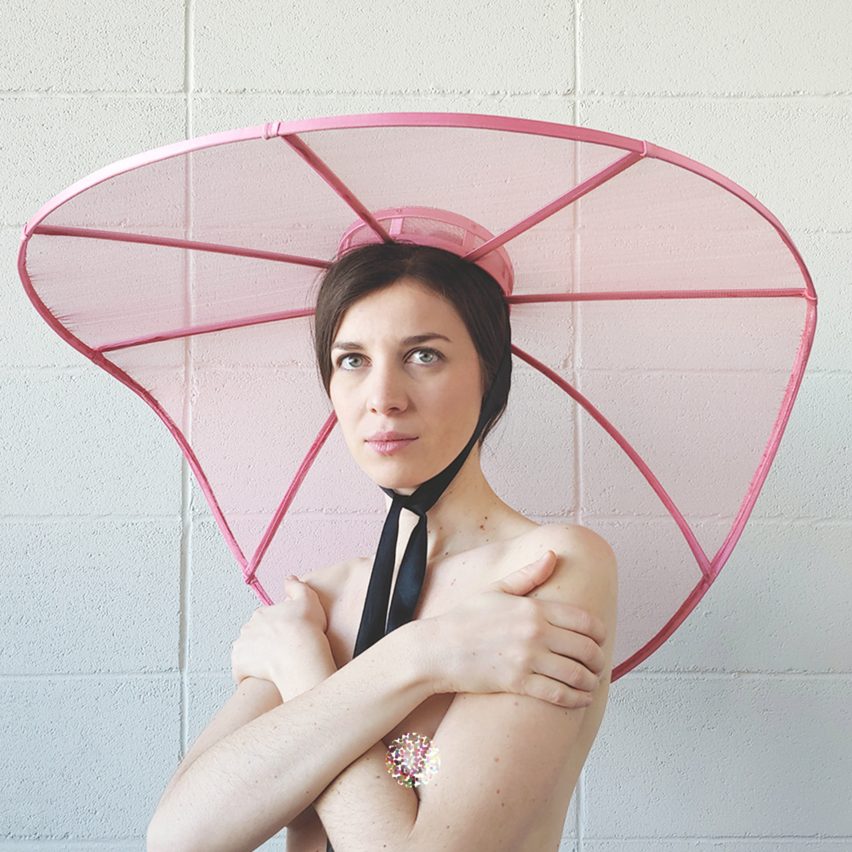
Veronica Toppino looked to historic examples of social distancing in fashion design when creating her Structure hats, which aim to help people feel shielded while still maintaining "extravagance".
Toppino, who is an Italian costume designer and milliner, created two hats comprised of large, bent aluminium structures. One is covered with stretched fabric, while the other is kept bare.
The hats aim to make people reflect on the role of functionality in fashion during the current coronavirus pandemic, specifically how clothing and accessories can play an important role in social distancing.
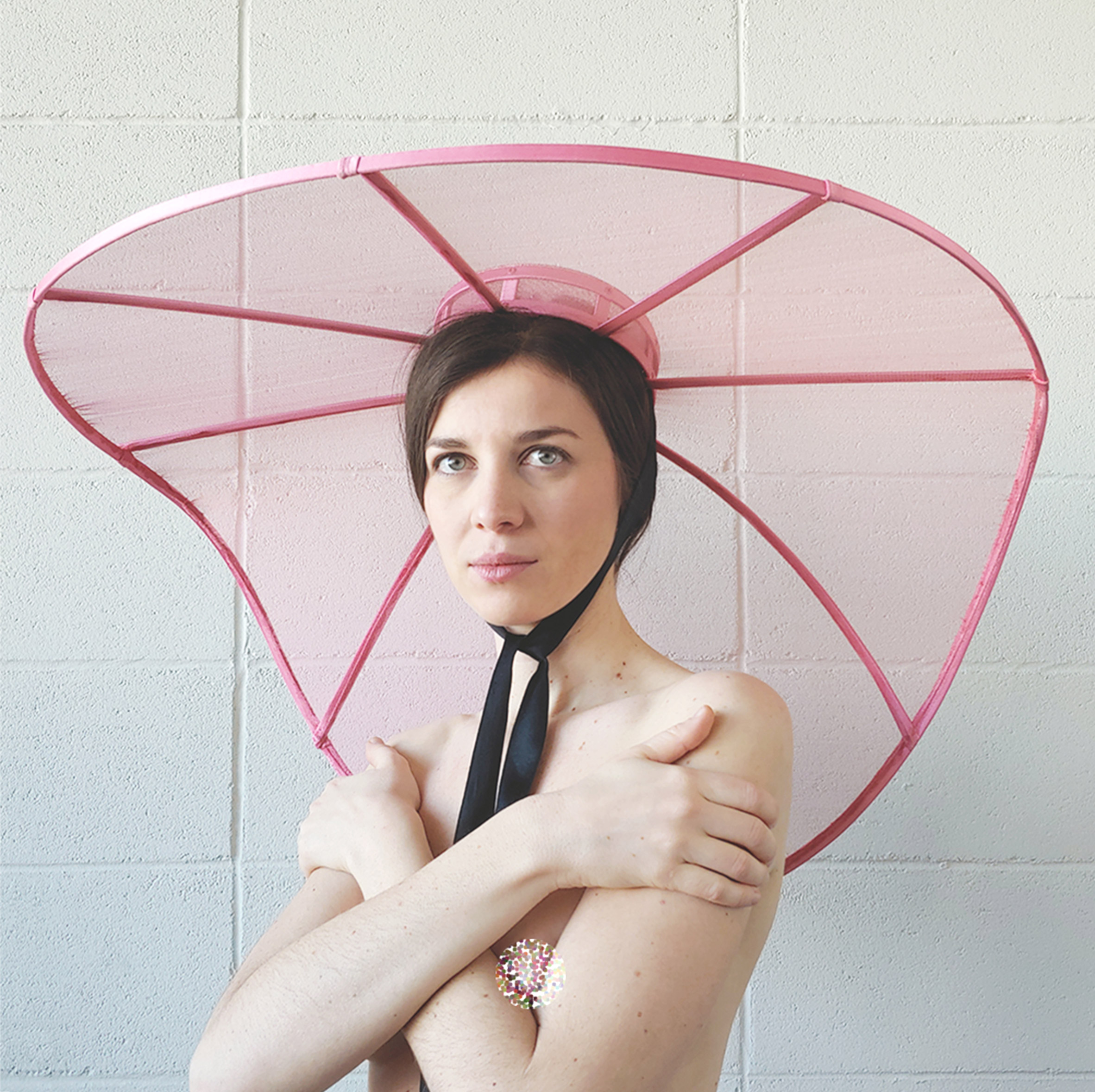
"Protection is one of the principal functions of dress," said Toppino. "We usually ignore that because we rather prefer to think about style and glamour."
"But as we are living in a strange time where social distancing has become a buzzword, the question arises: how dress can help protect us?"
"In this time of crisis, wearing a mask makes us feel protected and safer, regardless of whether they are useful or not," she continued. "Face masks have become a fashion accessory that signals others to 'stay away'."
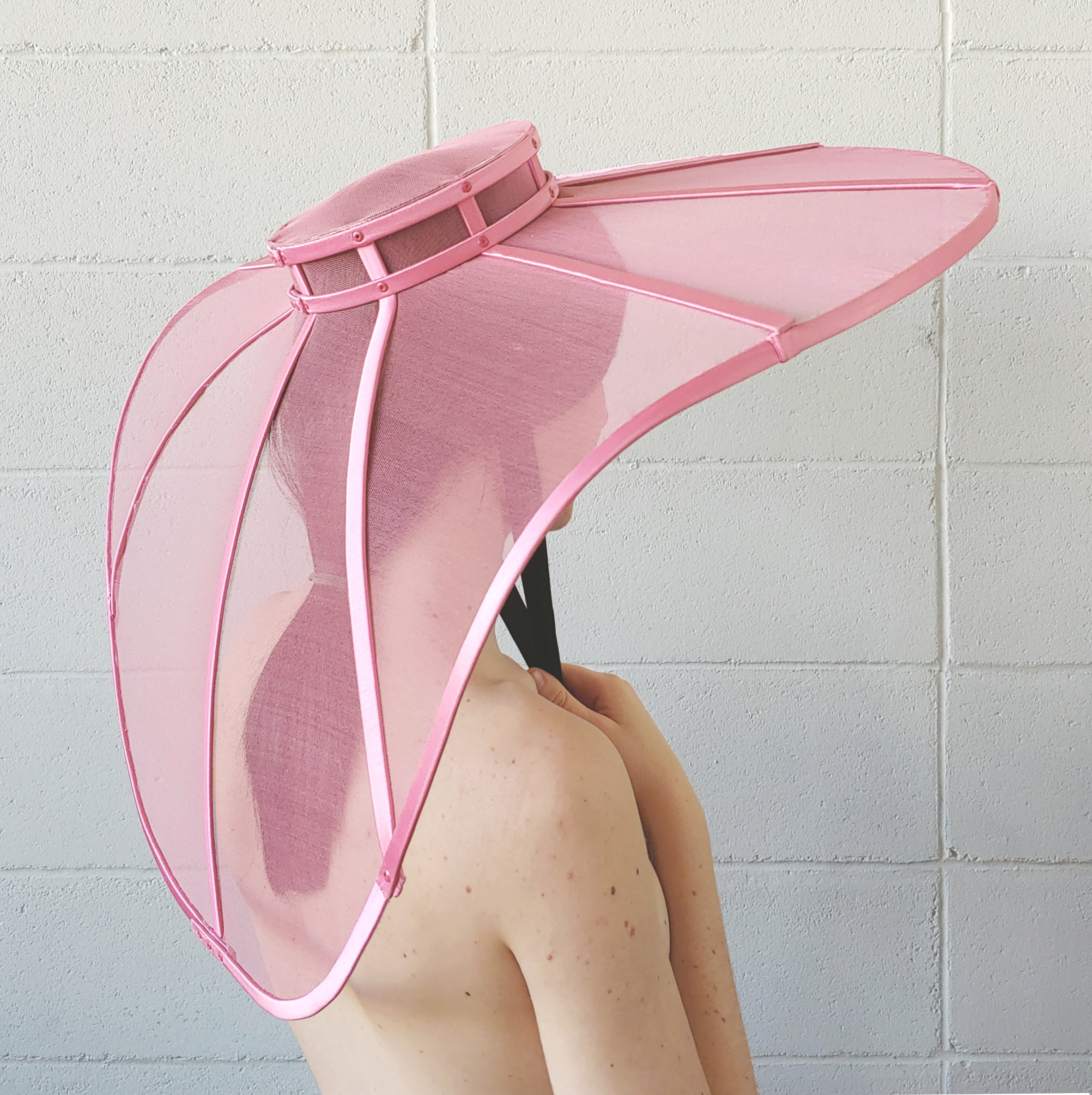
The Structure hats take cues from the oversized, broad-rimmed hats that were fashionable during the 18th century, as well as the steel-cage crinolines used underneath skirts that were popular in the Victorian era.
Rather than ordinary hats, Toppino considers her designs to be large, structural accessories that can help the wearer to keep other people at an arm's length.
With a wide brim of around 45 centimetres, the hat works to create what the designer calls a "protective orbit" around the head.
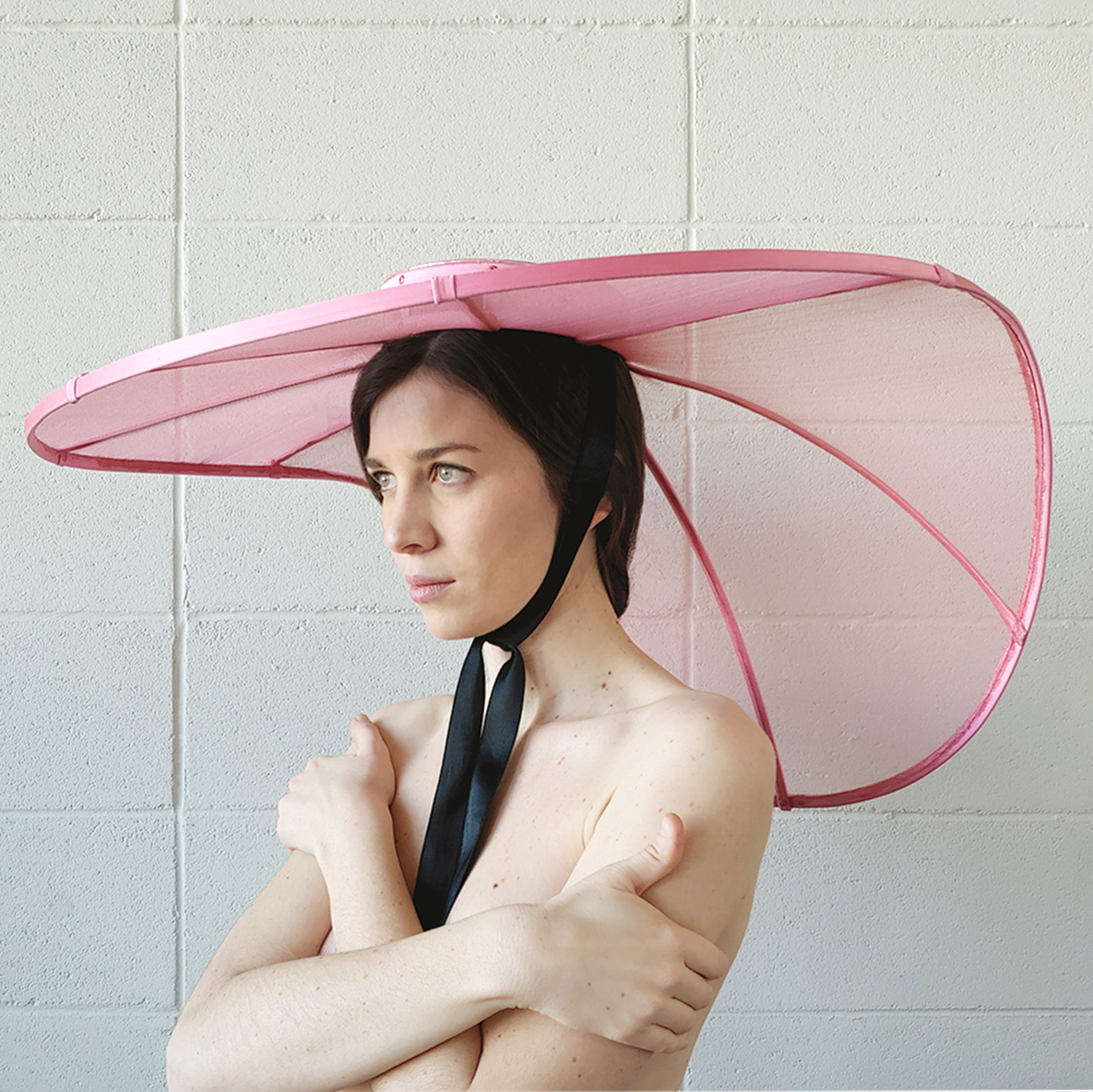
"If we look through history, fashion enabled social distancing through the ages," said Toppino. "Clothing has long served as a useful way to mitigate close contact and unnecessary exposure, whether the space created helped solve a health crisis or keeping away unwanted attentions."
"In the past, maintaining distance – especially between genders, classes, and races was an important aspect of social gatherings and public life," she added. "Social distancing wasn’t only used for isolation and health, but primarily was about etiquette and class. And fashion was the perfect tool."
Crinolines, for example, were used to maintain distance between people in crowded public spaces, the designer explained, used to keep "pesky suitors" away.
After crinolines, women continued to use fashion as "a weapon against unwanted male attention", said Toppino, in the form of items such as hat pins and oversized hats.
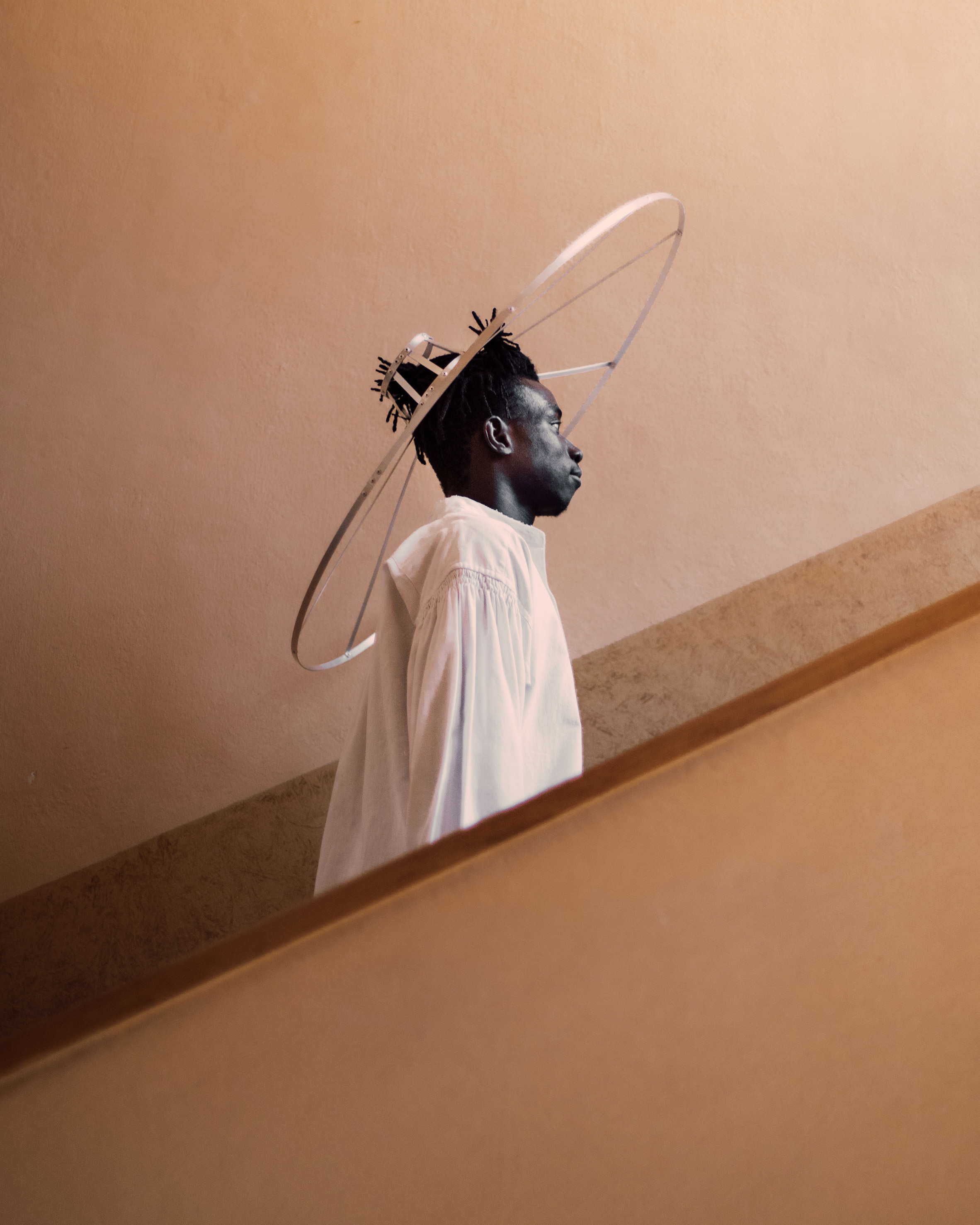
Toppino designed two Structure hats, one intended for men and one for women. The women's hat features a curved, symmetrical structure made from bent aluminium that has been covered with pink silk, and finished with a layer of see-through powernet fabric.
The men's hat, on the other hand, features the same voluminous structure but with a rougher surface finishing and no added fabric, leaving the aluminium bare.
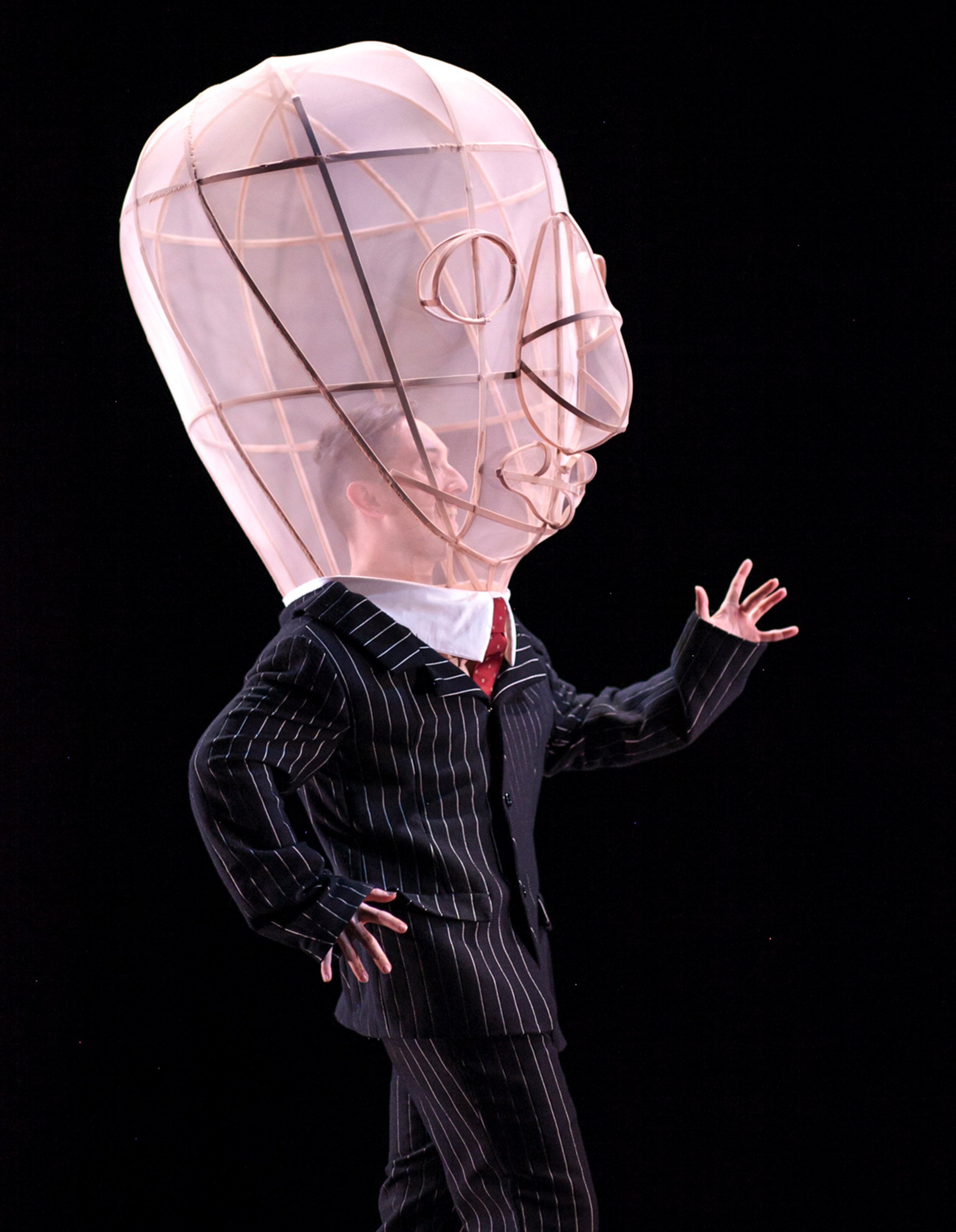
The hats are a continuation of Toppino's thesis project that she completed while studying costume design at the London College of Fashion, which saw her use the same see-through, structural design to create a performance piece in the form of a wearable oversized head.
Research and design platform Livable also created a wearable frame that resembles 19th-century crinolines. Its rattan design is worn over the head and body to encourage people to keep their distance during the Covid-19 pandemic.
Called Well-Distance-Being, the hourglass-shaped design consists of two cages that rest on the user's shoulders – one section facing upside-down to shield the neck and head and another facing downwards to cover the body.
The post Veronica Toppino's social distancing hats are an expression of shielded extravagance appeared first on Dezeen.
